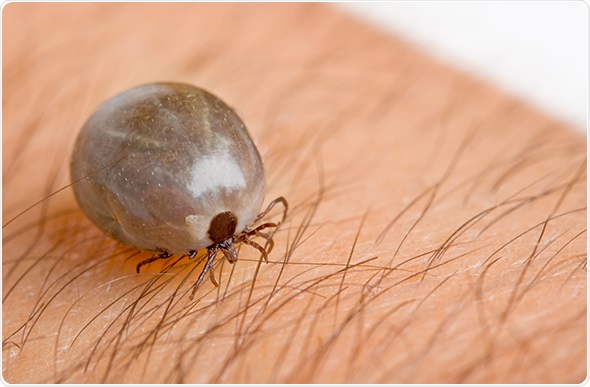A review published today by The Lancet Infectious Diseases warns of a potential upsurge in mosquito and tick-borne diseases across Europe as the climate gets warmer.
 Shutterstock / Petr Jilek
Shutterstock / Petr Jilek
Insects, such as mosquitoes and ticks, are responsible for transmitting a range of diseases, such as malaria, chikungunya, dengue fever, and West Nile virus. The risk of contracting such illnesses is generally only considered when booking an exotic holiday. However, experts from the Emergency Response Department at Public Health England have warned that climate change could allow such vector-borne diseases to emerge closer to home.
In the last 10 years, vector-borne diseases have emerged in new areas across Europe, eg, malaria in Greece, West Nile virus in Eastern Europe, chikungunya in Italy and France. The authors predict that disease-carrying mosquitoes may also become prevalent in the UK within the next few decades as the climate becomes increasingly mild and wet. Such conditions provide ideal breeding conditions for the Asian tiger mosquito (Aedes albopictus), which spreads the viruses that cause dengue and chikungunya. The mosquito responsible for the transmission of West Nile virus (Culex modestus) has already been identified at a number of sites across Kent, although there is currently no indication of virus transmission.
Author of the review, Dr Medlock commented “Given the ongoing spread of invasive mosquitoes across Europe, with accompanying outbreaks of dengue and chikungunya virus, Public Health England has been conducting surveillance at seaports, airports, and some motorway service stations. Although no non-native invasive mosquitoes have been detected in the UK so far, a better system to monitor imported used tyres, in which disease-carrying mosquitoes lay their eggs, needs planning”
Dengue fever is currently considered to be a tropical disease, since the larvae and eggs of the transmitting mosquito cannot survive freezing temperatures. However, climate change models indicate that by 2030 temperatures will have risen sufficiently to enable the Aedes mosquito to survive across large parts of England and Wales.
Author Professor Leach added “We are not suggesting that climate change is the only or the main factor driving the increase in vector-borne diseases in the UK and Europe but that it is one of many factors, including socioeconomic development, urbanisation, widespread land-use change, migration, and globalisation, that should be considered.”
In order to avoid future outbreaks of vector-borne diseases, we must ensure that public health systems worldwide have the ability to adapt to cope with the infectious diseases that might result from climate change.
Source:
Medlock JM, Leach SA. Effect of climate change on vector-borne disease risk in the UK. Lancet Infect Dis. 2015. Epub ahead of print. Available at: http://www.thelancet.com/journals/laninf/article/PIIS1473-3099(15)70091-5/abstract